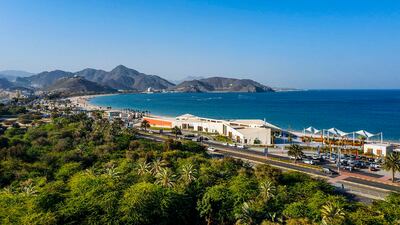Sharjah's public sector will adopt a four-day working week and a three-day weekend - giving employees an extra half day off than the rest of the country.
Sharjah's Executive Council announced the decision on Thursday. It will come into effect on January 1, 2022.
Employees will work from 7.30am to 3.30pm, which is 60 to 90 minutes longer than they do at present.
The decision follows the federal government's landmark shift to a Saturday-Sunday weekend, with a half day of work on Friday. The UAE's labour minister said the private sector will receive no official instruction to make the change, and can do so at their own discretion.
It makes Sharjah's government sector the first in the Gulf and Middle East to fully adopt a four-day working week. Dubai, Abu Dhabi, Ras Al Khaimah and Fujairah's local governments have all committed to a 4.5 day working week.
Sheikh Sultan bin Ahmed Al Qasimi, Deputy Ruler of Sharjah, announced the move after instructions from the Ruler of Sharjah.
Schools throughout the country are already braced for the new Monday to Friday working week, with schools expected to open with a new timetable on Monday, January 3. There is an extra national holiday on Sunday, January 2, 2022.
'More quality family time'
Sheikha Tariq, an Emirati public sector employee, told The National she and her colleagues were elated by the news.
She said it was clear that more work will have to be got through during the working week in return for the extra time off.
“This will not only give us more time to spend with our families in a way that will boost the emirate’s efforts of preserving the family unit, but will also encourage employees to perform better at work,” she said.
“It's a great decision in terms of more family bonding, religious commitment and increased productivity."
Abdul Jaleel Al Bloushi, who works for a government HR department in the town of Kalba, said employees would need to show they could make a four-day week work.
"You see by the working hours, you will notice they have been extended. And now employees including myself have an incentive to do better performance," he said.
He said many will appreciate the chance to be "more present in the lives of our children and families".
School situation not yet clear
Although it would appear likely that schools could fall in line with government work hours, headteachers said it was too soon to say whether pupils would attend classes on Fridays or not.
The country's public schools, largely attended by Emiratis, are overseen by a federal authority, while Sharjah's private schools are regulated by a local education authority.
Ibraheem Barakeh, director of the Al Shola group of private schools, said there were many factors to consider.
"We haven’t received anything official related to this decision, in terms of the shape of the school week," he said.
"We are eagerly waiting for details in order to be able to coordinate not only the new school week but also what’s connected to it, such as school holidays, final exams in each of the terms.
"We expect all of these factors were taken into consideration before the decision was taken."


























